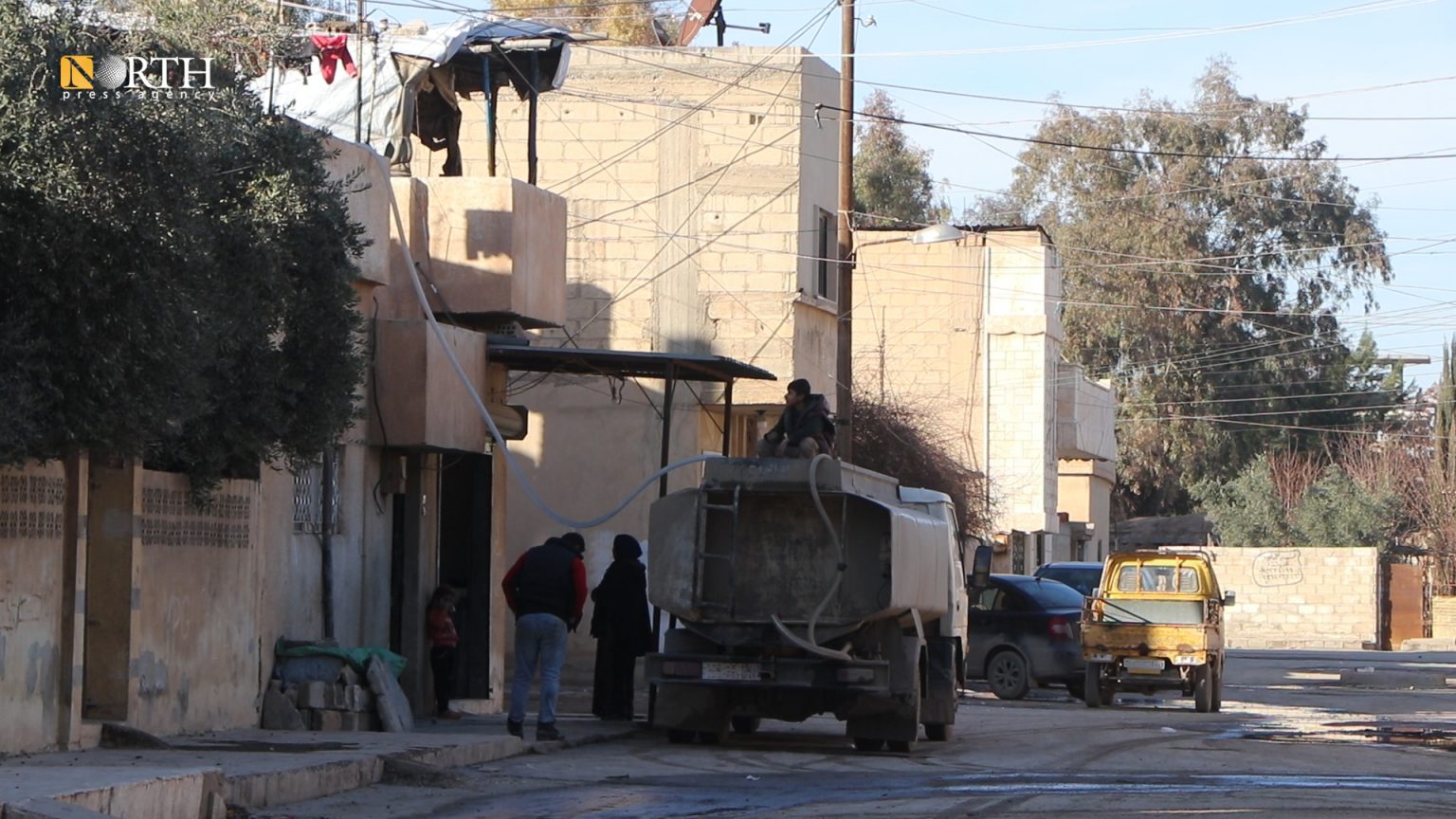HASAKAH, Syria (North Press) – Residents of the city of Hasakah and its countryside, in northeast Syria, are suffering to secure water every time Turkish forces cut off water from Alouk water station in the Turkish-held Sere Kaniye (Ras al-Ain) countryside.
On Saturday, Turkish troops re-operated Alouk station after ten days of cutoff, during which residents were forced to buy drinking water from tankers for high prices, buy bottled water, or fill undrinkable bitter water from wells.
Repeated cuts
The Turkish state, since its takeover of the city of Sere Kaniye about a year ago, has cut off the water supply to Hasakah nearly ten times, some of which lasted nearly a month amid the outbreak of coronavirus pandemic.
56-year-old Hasakah resident Ismail Ali said that he was forced to buy water from tankers for high prices in each time Turkey shut down Alouk station.
The family of eight needs five barrels of water a day, which costs between 4,000 and 5,000 Syrian pounds (SYP) daily.
Ali is forced to transfer water from a well in another district on his three-wheeled vehicle.
A meeting was held earlier between representatives of the Autonomous Administration of North and East Syria (ANES), the Syrian government, and Russian troops near Qamishli city, northeast Syria, regarding the water cutoff in Hasakah.
During the meeting, the two parties agreed to re-operate Alouk station at full capacity of 12 pumps and 30 wells, providing the city of Hasakah with water in turn for the AANES providing Sere Kaniye with 25 megawatts of electricity 12 hours per day.
Hasakah Water Directorate co-chair Sozdar Ahmed said that Turkish troops did not operate the station at full capacity.
Emergency effort
There are several water reservoirs constructed by relief organizations in districts of the city of Hasakah in order to provide people with drinking water, but those reservoirs are usually empty, according to residents.
AANES is continuing to work on the Euphrates River water extraction project from the city of Suwar in the eastern Deir ez-Zor countryside to the city of Hasakah and its southern countryside.
“The project is not considered a substitute for Alouk station, but rather an emergency effort to secure up to 25% of the needs of the city of Hasakah,” those in charge for the project said.
The AANES began work on the project, which is scheduled to be completed within three months, at the beginning of 2021.
Meanwhile, 54-year-old Hussein Ali, who is residing in al-Omran district, often buys bottled water in the light of his inability to secure water from tankers.
“We call water tankers hundreds of times to secure water, but tankers’ owners only fulfill the requests of their relatives and people they know,” he said.

